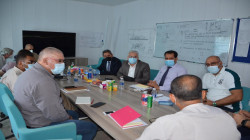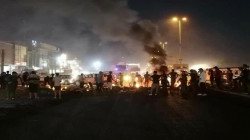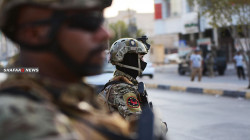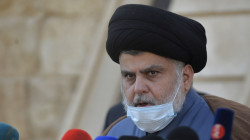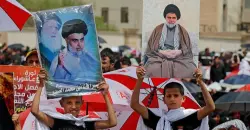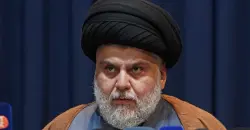Report: Sadrists attack rival factions in Basra to choke off their funds
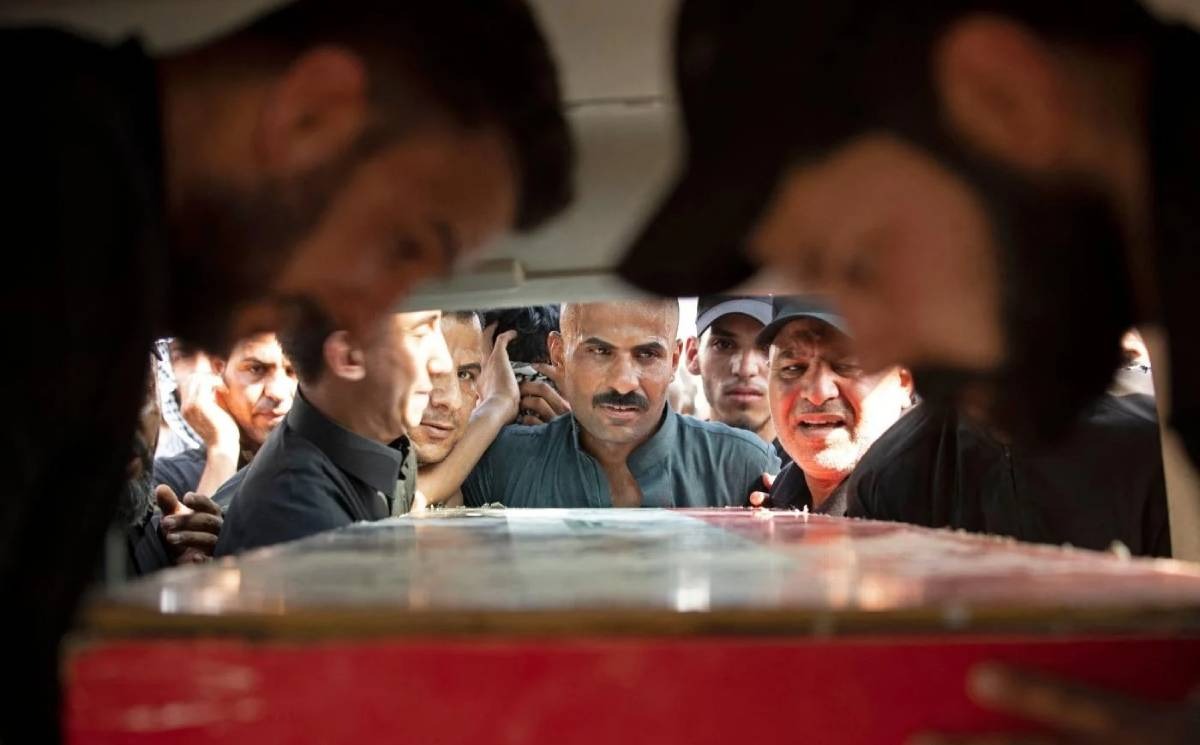
Shafaq News/ Basra has become the latest front in Iraq’s political crisis as followers of Muqtada al-Sadr have begun pressuring his opponents in the southern Iraqi oil hub to strip them of their economic resources.
Over recent weeks, there have been near-daily armed clashes between Sadrists and fighters of Asaib Ahl al-Haq, one of the most influential armed factions in Iraq and a staunch opponent of the influential Shia cleric.
The clashes have killed at least four people, three of them Sadrists, local security sources told MEE.
Most attacks are launched by Sadrist fighters, and have targeted the presidential palace complex, Asaib Ahl al-Haq’s headquarters and the homes of a number of its commanders.
The largest and most ferocious of these attacks took place at dawn on Tuesday and targeted the headquarters of the Hashd al-Shaabi paramilitary organistion in the presidential palaces complex, which is located in central Basra.
It was preceded by another attack targeting a group of Asaib leaders in Karmat Ali, north of the city.
Both attacks were carried out with Katyusha rockets, mortars and automatic weapons. The clashes between the two parties, which lasted for several hours in both locations, killed two people, one a Sadrist, local security sources said.
Competition in Basra
Iraq is OPEC's second-largest oil producer, with production reaching more than 4.45 million barrels per day in August. Most of it is produced from Basra, which hosts four of the six largest oil fields in the world.
Those petrodollars are the lifeblood of most of Iraq’s major political forces and armed factions, which draw funds from sub-contracts, commissions, royalties and illegal business related to border ports and oil companies operating in Basra.
Therefore paralysing their work in Basra will cost Sadr’s rivals billions of dollars in losses per month, local and federal officials and armed factions’ commanders in the city told MEE.
Sadr's Saraya al-Salam is the most influential armed faction in Basra, with Asaib Ahl al-Haq coming a close second. In recent years Asaib has proved a serious competitor for the Sadrists, securing huge financial gains. Sources said Asaib has the most to lose from the shutdown of activities prompted by Sadrist assaults.
"All political forces and armed factions subsist on [the resources of] Basra. Depriving them of their most vital economic resources will break them," a senior Saraya al-Salam commander serving in Basra told MEE.
The commander said Asaib Ahl al-Haq is the “spearhead” of Sadr’s opponents. “Breaking this spearhead will undoubtedly break the rest.”
Opportunity declined
Iraq has suffered a debilitating political crisis for a year, ever since Sadr emerged from parliamentary elections in October 2021 as the winner but was unable to form a government.
His Iran-backed rivals in the Coordination Framework alliance would have been marginalised by his proposed government, and managed to frustrate Sadr’s efforts until he ordered his 73 MPs to resign and announced his own withdrawal from politics in June.
Since then, Iraq has been in a spiral, with Sadr refusing to allow his opponents to form the power-sharing consensus government they want. He insists on dissolving parliament and holding early elections while maintaining the current caretaker administration headed by his ally, Prime Minister Mustafa al-Kadhimi.
Last week, a legal loophole was exposed that may have brought the Sadrist MPs, the majority of which were replaced by Coordination Framework candidates that had lost out originally, back to parliament.
A legal advisor to parliament ruled the resignations illegal, citing a lack of proper process. Coordination Framework sources told MEE the alliance was aware of the ruling and believed it could be a way to resolve the political impasse.
However, on Sunday Sadr decided his MPs would not use the loophole and return to parliament.
He insisted that new elections must be called, and refuses to entertain any talks that might lead to a political solution that satisfies all parties before fresh polls are held, a Sadrist leader close to the cleric told MEE.
"Everyone was surprised by Sadr's refusal to return to the parliament two days ago. The decision was shocking to the narrow circle close to Sadr," the leader said.
"All indications were suggesting a breakthrough and everyone [the Sadrist leaders] was satisfied with this face-saving solution. But he surprised everyone with his refusal."
(Middle East Eye)
